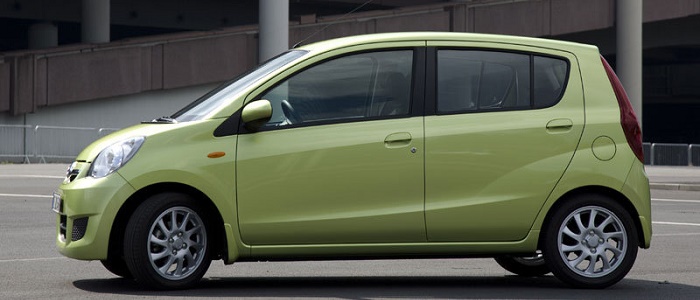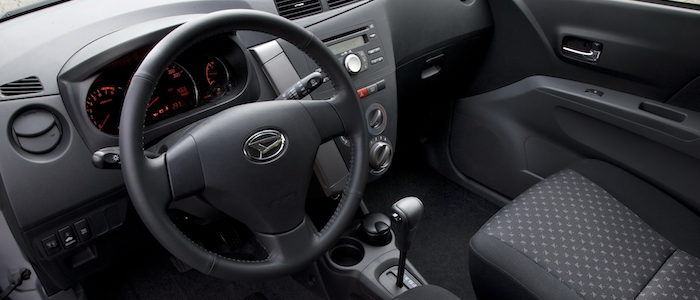Compare two cars
Compare any two cars and get our Virtual Adviser™ opinion
Marketing
Dimensons & Outlines
Engine
Performance (manual gearbox)
Performance (automatic gearbox)
Expenses
Virtual Adviser's™ opinion
We are here considering two somewhat similar cars, but we can't deny some of the obvious differences. For a start, they are not even classified under the same segment, with the Suzuki being a micro car and the Daihatsu representing city car vehicle class. The first one has a Suzuki-engineered powertrain under the hood, a 3-cylinder, 12-valves 68hp unit, while the other one gets its power and torque from a 3-cylinder, 12-valves 69hp engine designed by Daihatsu.
SafetyBoth vehicles got tested by European New Car Assessment Programme (Euro NCAP), with the same number of safety stars gained in the process. That aside, let's consider some other aspects which affect safety. The second vehicle is a city car and that gives it a marginal advantage over the micro car competitor, at least that's what statistics show. On the other hand, taking kerb weight as an important factor into account, Splash offers a considerable difference of 28% more metal.
ReliabilityI don't like generalizing things when it comes to reliability, although it does seem that both brands display similar results in faults and breakdowns, at least on all of the models level. These are the official statistics, while our visitors describe reliability of Suzuki with an average rating of 4.5, and models under the Daihatsu badge with 4.1 out of 5. Independent research findings rank Splash as average reliability-wise, and Cuore is more or less at the same level.Above it all, drivers of cars with the same engine as Splash rank it on average as 4.3, while the one under the competitor's bonnet gets 4.5 out of 5.
Performance & Fuel economyDaihatsu is way more agile, reaching 100km/h in 3.6 seconds less than its competitor. In addition to that it accelerates all the way to 160 kilometers per hour, exactly the same as the other car does. When it comes to fuel economy things look pretty much the same for both cars, averaging around 4.7 liters of fuel per 100 kilometers (60 mpg), in combined cycle.
Verdict
Suzuki appears just a bit more reliable, although the difference is truly marginal. The most important thing when deciding between any two vehicles should always be safety, both passive and active. In my opinion, everything taken into account, Splash offers slightly better overall protection and takes the lead. From there things take a different direction, with Daihatsu outracing its opponent in any situation possible, making it better choice for boy racers. To make things even better, it consumps less fuel! It's not difficult to say then that if I'd need to make a choice, it would definitely be the Daihatsu. In any case that's my personal view, built upon all the data available to me. What should decide here though is the way you feel about the two vehicles, and I hope you'll find my guidelines useful in the process. Also, you could use the oportunity to find out which car, everything taken into account, would be the perfect choice for you in the eyes of the virtual adviser™, among thousands of similar, yet so different vehicles.
































